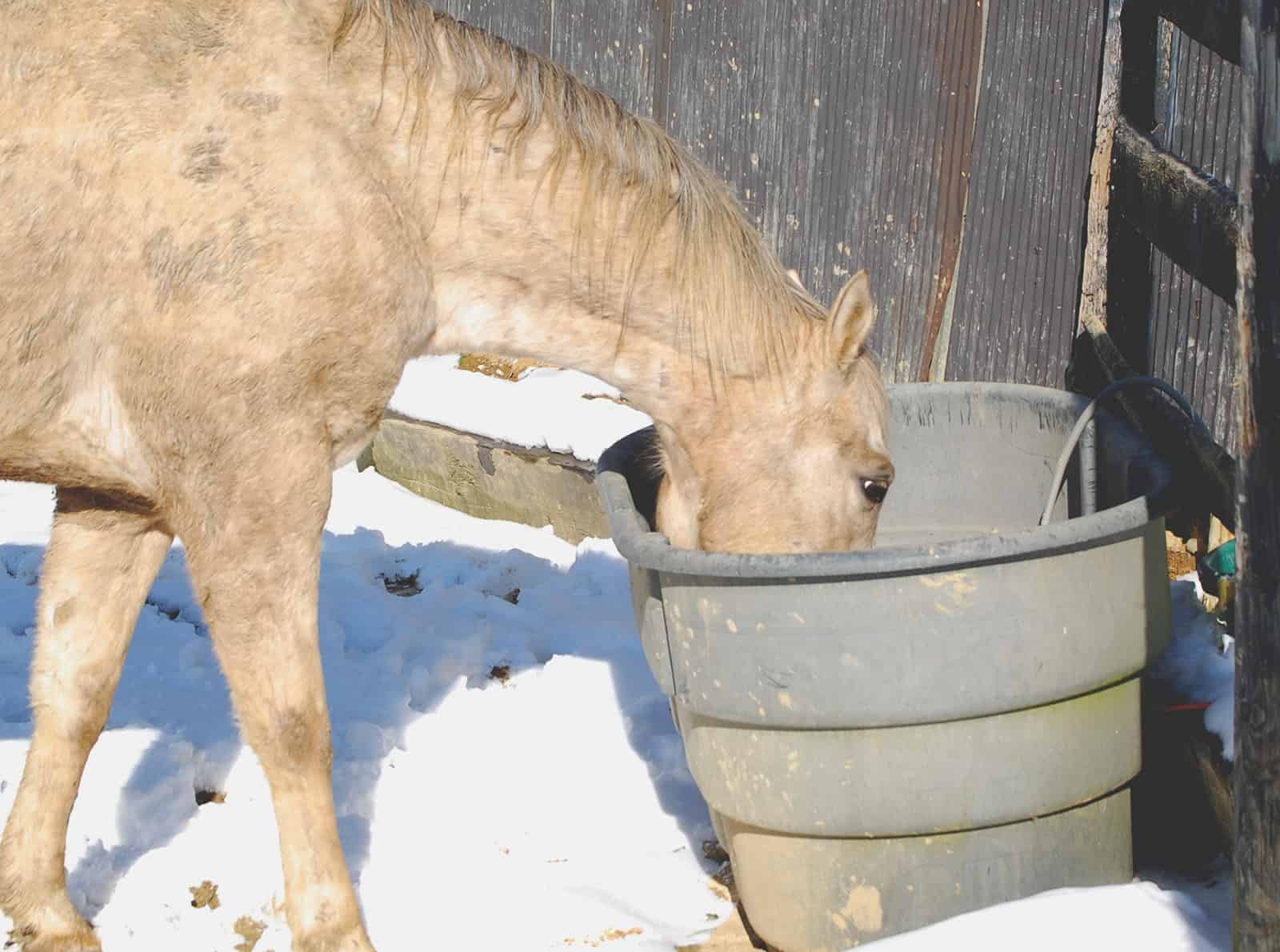Heated Horse Water Trough: Essential Winter Care Tips
- The article provides tips on preventing horse water troughs from freezing in winter.
- It suggests placing the trough in an area with maximum sunlight exposure, preferably a south-facing location.
- Insulating the trough is recommended to keep the interior warm, with foam board, foil covered insulation, or using double troughs with insulation in between.
- Online resources for building insulated troughs and using passive solar heating are mentioned.
- Floating something in the trough helps to keep the water moving and can create an open area in the ice for horses to drink.
- One suggestion is to use a two-liter soda bottle filled with water and salt as a floating object.
- The effectiveness of these methods may decrease as temperatures decrease. The article discusses various methods to prevent horse water troughs from freezing.
- Use insulated buckets or trough covers to help retain heat and prevent freezing.
- Install heaters specifically designed for troughs, such as battery, electric, or propane heaters. Follow manufacturer's instructions and ensure safety precautions are taken.
- Add salt to the water in the trough as saltwater freezes at a lower temperature than regular water. Seal the container tightly and ensure it floats so that the water keeps moving.
- Bury the trough in the ground to insulate it from the cold. Depth and effectiveness will depend on location and the depth at which the ground freeze occurs.
- Try putting manure under the trough. As it decomposes, it generates heat and may help warm the trough.
- Regularly check the water at least twice a day to ensure availability in cold weather.
- Keeping horses hydrated in winter is a priority.
- Heated troughs and water buckets are common solutions.
- Safety risks should be considered.
- Get an electrician to inspect the barn's electrical system before using heaters.
- Follow manufacturer's installation instructions for grounding and positioning of heaters.
- Protect electrical cords from horses by encasing them in PVC or anti-chew springs.
- Only use GFCI outlets for heaters.
- Avoid using extension cords with heaters.
- Purchase heavy-duty cords for outdoor use.
- Installing electric conduit and a GFCI outlet in a covered outdoor electrical box as a safer alternative to using trough heaters outdoors.
- Inspecting and replacing water trough heaters and heated buckets each year for signs of wear, such as frayed cords and loose parts.
- Older trough heaters may leak current into the trough, causing horses to refuse to drink.
- Unplugging and replacing a damaged heater if there is suspicion of electricity leakage.
- Trough heaters and heated buckets are essential for winter horse care in cold climates.
- Taking these steps yearly can help protect horses and provide water in cold weather.

